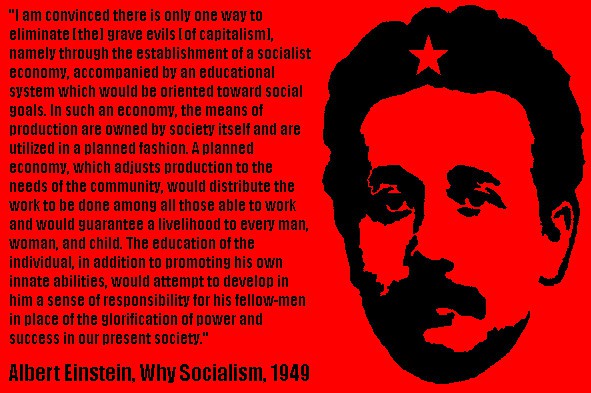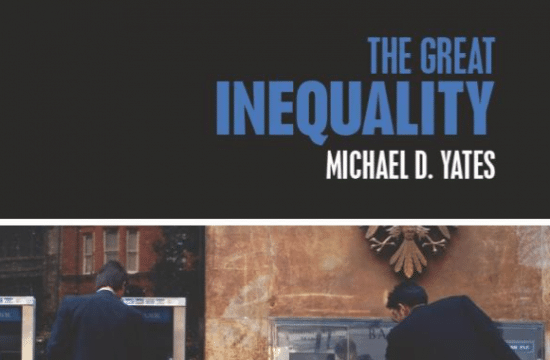 We spent six weeks in January and February in Ford City, Pennsylvania, my hometown. We stayed with my mother, in the house in which I grew up, and slept in the twin beds in my old room. Fifty years ago, I would pull up the covers and listen to faraway AM stations on my father’s Hallicrafter shortwave radio. I’d think about girls and baseball games and fall asleep while the train whistle blew in the distance. I never thought, much less worried, about the future. It was a hopeful and prosperous period for the white working class, and I couldn’t imagine anything but good times ahead.
We spent six weeks in January and February in Ford City, Pennsylvania, my hometown. We stayed with my mother, in the house in which I grew up, and slept in the twin beds in my old room. Fifty years ago, I would pull up the covers and listen to faraway AM stations on my father’s Hallicrafter shortwave radio. I’d think about girls and baseball games and fall asleep while the train whistle blew in the distance. I never thought, much less worried, about the future. It was a hopeful and prosperous period for the white working class, and I couldn’t imagine anything but good times ahead.
Today the good times are all gone. The population (a little over 3,000) declined by nearly 10 percent in the last decade, and it has been falling since the 1970s. It is half what it was when I was a teenager. Jobs are scarce; drug and alcohol abuse are rampant (there were two heroin overdoses in one evening); wages are shockingly low; and homeowners, including one of my relatives, are selling out to the Marcellus shale companies for ridiculously small sums of money. The glass factory and the pottery that once paid union wages are shuttered. Every day, the local paper lists a slew of arrests, jail admissions, and fines levied. The sad affects of the shoppers at the Wal Mart and the crowds in the store at midday—retirees and younger men and women who would be at work in a more prosperous area—are paradigmatic of what has been happening.
We took frequent trips to Pittsburgh, about forty miles south, traveling occasionally on back roads that went through some other small towns. They all looked poor and rundown, victims not only of the demise of local manufacturing and mining but also more than two years of deep recession. Pittsburgh, itself, was dreary and dirty, with roads chock full of deep potholes. Gang violence and murders are appallingly common; public services are getting ever more scarce; and the city’s finances are in disarray. Given what we saw, we were stunned when the Economist rated Pittsburgh one of the most livable cities in the world. My guess is that if you gave the magazine’s editors a choice of cities in which to live, none of them would choose Pittsburgh.
Western Pennsylvania may have features that make its economic misery unique, but I think in most respects it is not that much different than scores of other regions in the country. New York Times columnist Bob Herbert put it well in his final column last week:
So here we are pouring shiploads of cash into yet another war, this time in Libya, while simultaneously demolishing school budgets, closing libraries, laying off teachers and police officers, and generally letting the bottom fall out of the quality of life here at home.
Welcome to America in the second decade of the 21st century. An army of long-term unemployed workers is spread across the land, the human fallout from the Great Recession and long years of misguided economic policies. Optimism is in short supply. The few jobs now being created too often pay a pittance, not nearly enough to pry open the doors to a middle-class standard of living. . . .
High unemployment, enormous and growing inequalities in wealth and income, and endless wars are pestilences that stalk the land, leaving in their wakes a litany of woes: homicides, suicides, heart attacks, hypertension, arrests, prison admissions, mental illness, post traumatic stress disorder, alcoholism, drug addiction, homelessness, family dysfunctions, and a host of others. Job growth is so slow that it will take nearly a decade just to get the unemployment rate down to 5 percent.
The U.S. economy and the economies of nearly every other country are under the firm control of financiers rich beyond comprehension, and these individuals and the firms they direct want a pliable and insecure worldwide labor force that will do their bidding. They stand ready to exert their enormous power to get their way, whether by shutting down plants, moving offshore, outsourcing jobs, disseminating propaganda through their media, or flooding politicians with money. They have no loyalty to any country, only to the expansion of their capital. If a nation tries to put in place policies that benefit working people, finance capital stands ready to attack its currency and move its resources elsewhere. Governments disobey their monied masters at their peril.
What all of this means is that the trajectory of working class life is at best stagnant and at worst continuously downward, ever more insecure and precarious. The rich will get richer, and the rest of us will serve them in one way or another. It will not matter who is president or prime minister or what promises any aspiring politician makes. Whatever could be done to alleviate human misery will not be done. In the United States, there will be no “New New Deal,” no universal health care, no concern for the poor, the aged, the infirm. There will be nothing but a deepening assault on the living standards of the working class.
The hope for a better future has been deeply ingrained in the American psyche. And this hope had some basis in reality, even if the “rags to riches” saga was more myth than truth. Today, however, hope is a pipedream for most. Our best days are behind us. We have good reason to be anxious and depressed; the future looks bleak because it will be.
Unless, that is, we do something about it. It is time to resurrect what Karl Marx and Frederick Engels said at the end of The Communist Manifesto: “The workers have nothing to lose but their chains. They have a world to win. Workers of all countries, unite!” These words might sound quaint, antiquated slogans of a bygone era. But they are as relevant as ever. One proof of this is that the enemies of the workers, the finance capitalists with all the power, have taken them to heart for a long time. As Warren Buffett famously said, “There’s class warfare, all right, but it’s my class, the rich class, that’s making war, and we’re winning.” Well, it is far past the time for us to wage class war in return. If much of what we had has already been taken, and what we still possess is under assault, we really don’t have much more to lose but our chains.
Right now, across the world, millions of people are rising up in protest against dictatorships that have not only denied their citizens basic democratic rights but have implemented the neoliberal agenda of attacks on workers. In Tunisia and Egypt, the masses said “enough is enough,” took to the streets, and overthrew their governments. In Bahrain and Yemen, they have bravely faced bullets to demand freedom. Civil war has erupted in Libya, and protests have spread to Syria. Chinese workers are organizing, as are those in India and South Africa. Iran may soon once again see its streets full of anti-government demonstrators. What my friend Elly Leary said about the top leadership of most U.S. labor unions applies in spades to the world’s autocrats, “Everyone can and should be replaced.”
This past February, revolt spread to the United States, with the remarkable uprising by public employees in Madison, Wisconsin. Working persons around the country have taken heart from this, and protests have erupted in other states. As living standards continue to deteriorate, what happened and continues to happen in Wisconsin might give others the courage to rebel.
Readers sometimes ask me what I think should be done to reverse the collapse of the labor movement and the one-sided class struggle Warren Buffett and his ilk have been waging. I usually hesitate to answer, arguing instead that the people themselves will figure out what to do as they fight to improve their circumstances. Let me make an exception here and issue a call to arms.
Educate yourselves so that you can learn what is going on in the world. Do not be taken in by the mainstream media, whose owners are more interested in making money than in telling us the truth. Do not fall for the hatemongers who would have us believe that immigrants or Muslims or the Chinese are to blame for what is happening. They are not. It is the economic system and those who control it that bear responsibility. We must make common cause with all exploited people, no matter their race, ethnicity, or religion. We have more things in common than not.
We must stop believing that this or that election will make much difference. It will not. President Obama says he is a man of the people. He is not. He is a war maker. He cares little for democracy and a lot for Wall Street. When he and his opponents tell us that taxes on the rich must not be raised, that deficits must be immediately cut, that we can’t afford Social Security and Medicare, that public services must be cut or privatized, that money doesn’t matter when it comes to quality schooling, that Iraq and Afghanistan and Libya and all the new wars being planned are necessary to protect our freedoms, that all the things we think are good are really bad, remember that they are lying. Remember that it is better not to vote than to vote for the lesser of two evils. Fight politically for programs not for people. Build an independent party for workers.
Organize your workplaces. You have no chance otherwise. Your employer does not have your interests in mind when it makes decisions. You are not “associates” or “team members” or valuable and cherished human beings. You are costs of production; the harder you work and the lower your wage, the more valuable you are. You will be scrapped like worn out machinery whenever more money can be made with other workers in other places.
If you are in a union, demand that the rank-and-file control it. Reject all labor-management cooperation schemes. Don’t abandon the strike. Make compromise a tactic not a strategy. Many union leaders are as bad as employers. They care for us just as little. Show them the door as soon as you can. If it is just for Egyptians to demand democracy, it is for you too.
I am a writer and a teacher. It is my duty to choose sides when I write, to be allied to the working class. It is my duty to teach my students to think for themselves. We should use whatever skills we have to push our struggles forward. This might be a time when what we do matters. We must speak out.








Your words are very inspiring! Let’s hope we can make this happen before they kill all of us.
March and Rally against the wars at home and abroad!
Saturday, April 9, Noon, Union Square, New York
Sunday, April 10, 11:00 A.M., Dolores Park, San Francisco
Bring the troops home now! Trillions for jobs, schools, housing and healthcare not wars, corporate bailouts and tax breaks for the rich!
In solidarity with the world’s working class,
Bonnie Weinstein
Dear Michael,
Poignant and powerful narrative. I too “never thought, much less worried, about the future,” growing up in France in the 1950s. To me, the future was about what Marcel Pagnol’s father — a school teacher — predicted at the turn of the 20th century. It would be a century of progress. Houses would have gas for cooking and heating, electricity, the telephone, and even one free day a week and only a 10-hour work day (cf. “My father’s castle”).
Yes, of course, there had been the long war (WW1 + the Great Depression + WWII), but it was the past. The present then — again the 1950s…and 1960s — saw considerable improvements in the living conditions of all (in the Western world). I did not understand much about class warfare because I instinctively felt that we were all equal. Darn, was I ignorant — though still to this day feel that I was right. We are all equal, but as someone, whose name escapes me at this time, once said, “all equal but some are more equal than others….”
By the 1970s it became increasingly clear that the moneyed class had decided to fight back the rights of the majority of the people — what you call the working class — had gained through blood, sweat, and tears. Keep in mind that it was not just the working class that fought for these rights….
By the 1980s the reactionary war was in full bloom, with “TINA” Thatcher and Raygun leading the charge. Thirty years later the results are devastating and for all to see. Humans have become as disposable as toilet paper. Actually, there seems to no longer be “human beings,” only consumers. As to having people think for themselves — a long goal of mine, and work on Swans — it is becoming a sisyphean task in a societal realm that cultivates and privileges ignorance. Where individualism reigns unity loses.
But you know all this better than I do. I just wanted to acknowledge the clarity of your thoughts and thank you for sharing them.
Kind regards,
Gilles
Just a clarification about the quote I cited. It was George Orwell who wrote in Animal Farm, “All animals are equal, but some animals are more equal than others.”
It does apply to the consuming rats, does it not?
Comradely,
Gilles
Bonnie, Thanks for the note and your good work. Yes, indeed, before they kill us all!
Gilles, Thanks for the insightful reply. And for keeping Swans going all this time. No easy task. Karen liked your note too.
Michael
Michael Yates is so right to point out the deep conviction in previous American generations that life would go on getting better forever. It explains the stunned state of mind–not unlike trauma–that I note in ordinary people each time I return to the U.S. Europe did share the same conviction up to a point. But its optimism was conditioned by various recent horrors on its home ground, starting with WWI. Invasion, fire bombing and genocide make for scepticism. On top of life getting worse every day we now have to put up with a caricature of progress. A new, mind-boggling electronic geegaw that we neither need nor can afford is pushed in our faces daily.
It is class warfare and I believe we have been taken by Obama and company. We must surely begin to take care of ourselves at a much simpler level.
Good work, Mike.
Below is one paragraph from an essay I think you would find interesting.
http://sunweber.blogspot.com/2011/02/curmudgeon-report.html
The Curmudgeon Report
We will do anything and everything to maintain our present personal level of energy use and the comfort it affords us. We will do anything and everything to the earth, to other people and even to ourselves to continue on this path. And if we don’t have the energy level we see others have, we will do anything and everything to the earth, to other people and even to ourselves to attain that level. The proof of this assertion is simple; we are doing it.
Rings true. But then, we’ve always been under a dictatorship of Capital, even in the 50s when I grew up in northeastern Pennsylvania, I’d have dreams of atom bombs falling in the schoolyard after having undergone an under the desk sort of Civil Defense drill. The HUAC hearings were on TV. Dizzy Dean too, of course and the Game of the Week and Dinsneyland’s opening in Anaheim…yes, yes, yes. Also, we had monsters grown large from radiation and were attacking us or Tokyo on the movie screens.
But you’re right. We’re being attacked now too. Only now, we don’t have to worry about Communism anymore because the Communists all died or gave up or became conservatives or paid staff members at the Hoover Institution. The Communist movement was eaten alive by its own reformist course and a legitimised nationalism a la defending the USSR’s foreign and domestic policy no matter how un-communist it was. Ah me….
So, nowadays, not only are we under attack from Capital, we’re not even worth being bought off. The fear that workers of the world would unite under the banner of M-Lism has well and truly gone with the wind. And what are we left with? I mean the left. We have a left which is 99% un-conscious of which class they’re in or why it would matter in the first place. We have a left hopelessly tied to liberalism, albeit a more radical form than the official liberals in the Democratic Party. We have a left in the unions and political organisations who never mention the wage system other than to demand a fairer version of exploitation. We have a left guilt ridden about the workers who they claim are suffering from ‘affluenza’. We have a left hopelessly mired in searching for identity and bowing to others’ self-proclaimed identity politics. We have an intellectual left in horror, grasping at a grand narrative which claims to be against all Grand Narratives. We have a left waiting for Godot to emerge from the less industrialised political States. We have a left which has so thoroughly become respectful of religion that it has become religiously authoritarian itself, complete with classless moral trappings and finger waving. In short, we have a left which has been tamed by the dominant ideology: TINA.
Peter, Your comments are on target. People here, mainly whites, had the privilege of being overly hopeful while everyone else had seen horror so close up that it conditioned their optimism.
John, The quote from your blog post is excellent. The proof is always in the pudding.
Mike, You are as usual correct here. The dominant ideas, those of our rulers, take hold in nearly everyone’s mind.
Michael, I have always enjoyed your blog posts and Monthly Review articles as I am attempting to educate myself regarding political-economic and working class issues. Thanks.
You sound a bit like the late Joe Bageant. He was perhaps more focused on the poor of the redneck south, but that’s me (or was, I’m no longer officially poor). Keep it up, please.